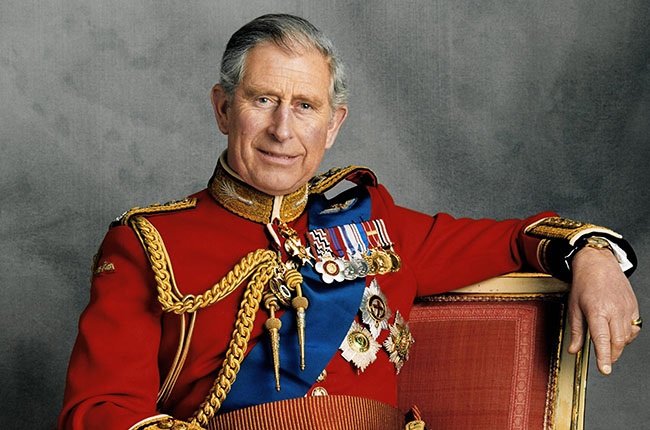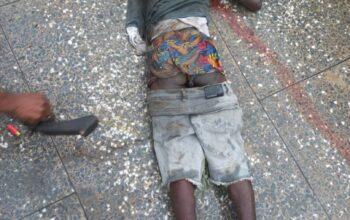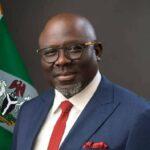From the investiture ceremony to the Coronation Big Lunch, the first weekend in May will be full of celebrations for the new monarch
King Charles and the Queen Consort will be crowned alongside each other at Westminster Abbey on May 6.
King Charles is set to be crowned alongside the Queen Consort at a lavish ceremony in Westminster Abbey later this year.
The investiture will form part of a long weekend filled with celebrations for the new monarch, ranging from street parties to concerts.
The King ascended the throne after the death of his mother, Queen Elizabeth II, in September last year, making him the oldest new monarch in British history.
Since then, plans for the much-anticipated Coronation weekend, code-named Operation Golden Orb, have been released.
When is the King’s Coronation?
The Coronation service will begin at 11am on Saturday, May 6 at Westminster Abbey.
The ceremony will be followed by a weekend of events, including a concert at Windsor Castle.
What will happen at the Coronation ceremony?
The King and the Queen Consort will arrive at Westminster Abbey in a procession starting from Buckingham Palace known as The King’s Procession.
Their Majesties will be crowned in the Abbey in London in a service that will be conducted by the Archbishop of Canterbury.
Buckingham Palace said the ceremony will reflect the monarch’s role today and look towards the future, while remaining rooted in longstanding traditions and pageantry.
In a statement, the Palace added: “The Coronation is a solemn religious service, together with an occasion for celebration and pageantry.
“The ceremony has retained a similar structure for over a thousand years, and this year’s Coronation is expected to include the same core elements while recognising the spirit of our times.
“For the last 900 years, the ceremony has taken place at Westminster Abbey, London. Since 1066, the service has almost always been conducted by the Archbishop of Canterbury.”
The service has been planned to be representative of different faiths and community groups, in line with the King’s wish to reflect the ethnic diversity of modern Britain.
He will still pledge to be “Defender of the Faith” in the Coronation oath, but palace aides and church officials plan to add further words that will allow the King to recognise he serves all religions.
The King has asked for Greek Orthodox music to be played in the service in tribute to his late father, the Duke of Edinburgh, to be performed by the Byzantine Chant Ensemble.
Lord Andrew Lloyd-Webber has been commissioned by King Charles to write his Coronation Anthem, in what the composer hopes will “reflect the joyful occasion”.
The anthem is one of 12 new pieces of music selected personally by the new monarch for his ceremony.
The Coronation will also include many of the ceremonies that were seen in the late Queen’s service, such as anointing with consecrated oil, the delivery of the orb and the enthroning itself.
Over 8,000 guests from 129 nations travelled to Westminster Abbey for the coronation of Queen Elizabeth II in 1953, but the King’s Coronation will be limited to 2,000 to accommodate health and safety restrictions.
Only a minority of MPs and peers will be invited to the ceremony, but it is understood that Buckingham Palace is pleading with Westminster Abbey to secure more spaces for guests.
Charles is understood to want a diverse congregation to witness the historic event, and has invited representatives from his many charity affiliations and from across the voluntary sector.
On April 8, it was announced that over 1,250 volunteers and young people had been invited to either attend the ceremony itself or be part of one of its surrounding events.
During the ceremony, the King will be asked if he will govern the United Kingdom and other nations of the Commonwealth with law and justice and if he will maintain Christianity in the nation.
He will be seated in the Coronation Chair, known as Edward’s Chair, holding the sovereign’s sceptre and rod, to represent his control of the nation, and the sovereign’s orb, to represent the Christian world.
After being anointed, blessed and consecrated by the Archbishop, Charles will have the crown of St Edward placed on his head, officially crowning him as King Charles III.
Meanwhile, Prince George is to become the youngest future king to play an official role at a coronation, having been named one of his grandfather’s four Pages of Honour.
The nine-year-old will be tasked with carrying the King’s robes alongside three other Pages of Honour – schoolboys Lord Oliver Cholmondeley, 13, Nicholas Barclay, 13, and Ralph Tollemache, 12. All three are the sons of His Majesty’s friends.
The Queen has chosen to include as her own Pages of Honour her three grandsons, twins Gus and Louis Lopes, 13, and Freddy Parker Bowles, 13, as well as her great-nephew, Arthur Elliot, 10.
Will the Coronation be televised?
The Coronation will be televised for British and international audiences to watch. It comes after the Accession Council was broadcast for the first time ever in September last year.
The late Queen’s coronation was the first ever to be televised and came at her own request. An estimated 27 million people in the UK watched the ceremony on television, with 11 million tuning in on the radio.
The King could also become the first monarch in British history to be publicly anointed at his Coronation, with a transparent canopy being specially made for the ceremony.
Traditionally, the most sacred part of the event – when the Archbishop of Canterbury pours holy oil from the ampulla onto the Coronation Spoon, and anoints the sovereign on the hands, breast and head – is hidden from the public with a canopy.
The Telegraph understands that an alternative canopy, with a see-through top, is being made to give the King the option of allowing the anointing to be caught on camera for the very first time.
On Sunday, May 7, a Coronation Concert will be staged and broadcast live at Windsor Castle by the BBC.
What will happen the day after the Coronation?
People across Britain will take part in the Coronation Big Lunch, during which neighbours and communities will be invited to share food and fun.
The Government announced that the Prime Minister will host a Big Lunch at Downing Street on the Sunday and that guests will include community volunteers from across the country.
Meanwhile, the Culture Secretary has also called on the public to showcase their local celebrations on a digital map to mark less than two months to go until the event.
When is the Coronation bank holiday?
An additional bank holiday to mark the Coronation is scheduled for Monday, May 8.
It will take place across the UK, and in recognition of the King’s concern for strengthening local communities, the public will be encouraged to volunteer and join projects in their local area as part of the Big Help Out.
The King and Queen Consort hope that the impact of the Big Help Out will be felt across the country, creating a lasting legacy and the recruitment of more volunteers.
What Crown does the king wear?
The King will be crowned with the St Edward’s Crown, which is made of solid gold and features over 400 gemstones, including rubies, garnets and sapphires. He will leave the Abbey wearing the Imperial State Crown.
The King is thought likely to arrive at his Coronation in military uniform, which would then form his main attire for the ceremony.
The King is thought likely to arrive at his Coronation in military uniform, which would then form his main attire for the ceremony.
It would offer a more modern look than the silk stockings and breeches of his predecessors.
He will enter Westminster Abbey in the Robe of State, also known as the Parliament Robe as it is worn for the State Opening of Parliament.
He will then wear a number of sacred garments throughout the ceremony. You can read about them in detail here.
What is Operation Golden Orb?
Operation Golden Orb is the codename under which plans for King Charles’s Coronation had been drawn up.
What will happen after the Coronation?
After the ceremony, the King and Queen Consort will return to Buckingham Palace in The Coronation Procession.
It has been revealed that the procession will be a fraction of the length of Queen Elizabeth’s, raising fears that many royal well-wishers may miss out on the chance to see the new monarch.
The 1.3-mile route will take the King and Queen from Westminster Abbey to Buckingham Palace, but avoid large sections of the capital that were taken in during Queen Elizabeth II’s 1953 five-mile Coronation procession.
It will be the reverse of their journey to the Abbey, meaning people who have managed to secure a spot lining the route will see the King twice.
The King will then stand on the Buckingham Palace balcony with the Queen Consort and other senior members of the family to conclude the day’s ceremonial events.
The Coronation will see Prince William taking on new titles, including being formally named as the Prince of Wales.
Who will pay for the Coronation?
The Government pays for the Coronation and the King has reportedly expressed a wish that his service is considered “good value” given that it comes during a cost of living crisis.
Will Camilla become Queen?
The Duchess of Cornwall will be crowned Queen alongside her husband during his Coronation.
The title Queen Camilla has been used for the first time by Buckingham Palace on the Coronation invitation, as it emerged that “Consort” will be officially dropped after next month’s ceremony.
Camilla has been referred to as Queen Consort by the Palace since the death of Queen Elizabeth II last September.
However, royal aides revealed that Queen Camilla was now considered an “appropriate title” to set against King Charles.
The Telegram










